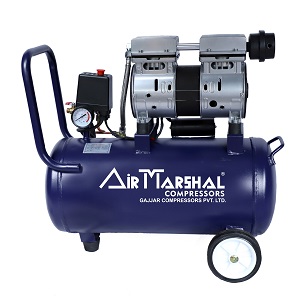In the realm of vacuum technology, choosing the right pump is paramount for optimal performance in diverse applications. Gajjar Compressor, a renowned player in the compressor and vacuum pump industry, offers a line of Reciprocating Vacuum Pumps that stands out among various alternatives. Let's delve into a comparative analysis to understand why Gajjar's offerings hold a distinct advantage.
Understanding Reciprocating Vacuum Pumps: The
Gajjar Compressor Advantage
Gajjar Compressor's Reciprocating Vacuum Pumps operate on a
simple yet effective principle. These pumps use a piston-cylinder arrangement
to create a vacuum, making them suitable for applications requiring high
efficiency and robust performance. The design ensures reliability, durability,
and minimal maintenance requirements, making them a cost-effective solution for
long-term use.
Comparing with Rotary Vane Pumps: Precision
Meets Power
Compared to rotary vane pumps, Gajjar's Reciprocating Vacuum Pumps showcase exceptional precision and power. While rotary vane pumps
are known for their smooth operation, reciprocating pumps provide a higher
level of control over pressure variations, making them ideal for applications
demanding consistent vacuum levels.
Diaphragm Pumps vs. Gajjar's Reciprocating
Vacuum Pumps: A Durability Showdown
Diaphragm pumps are recognized for their leak-tight design,
but Gajjar's Reciprocating Vacuum Pumps take durability to a whole new level.
With fewer moving parts and robust construction, these pumps demonstrate
longevity in operation, minimizing downtime and reducing overall maintenance
costs.
Energy Efficiency in Gajjar's Reciprocating
Vacuum Pumps
In the competitive landscape of vacuum pumps, energy
efficiency is a critical factor. Gajjar Compressor's Reciprocating Vacuum Pumps
excel in this aspect, providing an optimal balance between power consumption
and performance. The pumps are designed with energy-saving features,
contributing to sustainability efforts without compromising operational
capabilities.
Making an Informed Choice
In the quest for the right vacuum pump, Gajjar Compressor's
Reciprocating Vacuum Pumps emerge as a reliable and efficient choice. Whether
compared to rotary vane or diaphragm pumps, Gajjar's offerings showcase a
commitment to precision, durability, and energy efficiency. When navigating the
vacuum landscape, choosing a pump that aligns with your specific needs is
crucial, and Gajjar Compressor's Reciprocating Vacuum Pumps stand as a
testament to innovation and excellence in the field.






